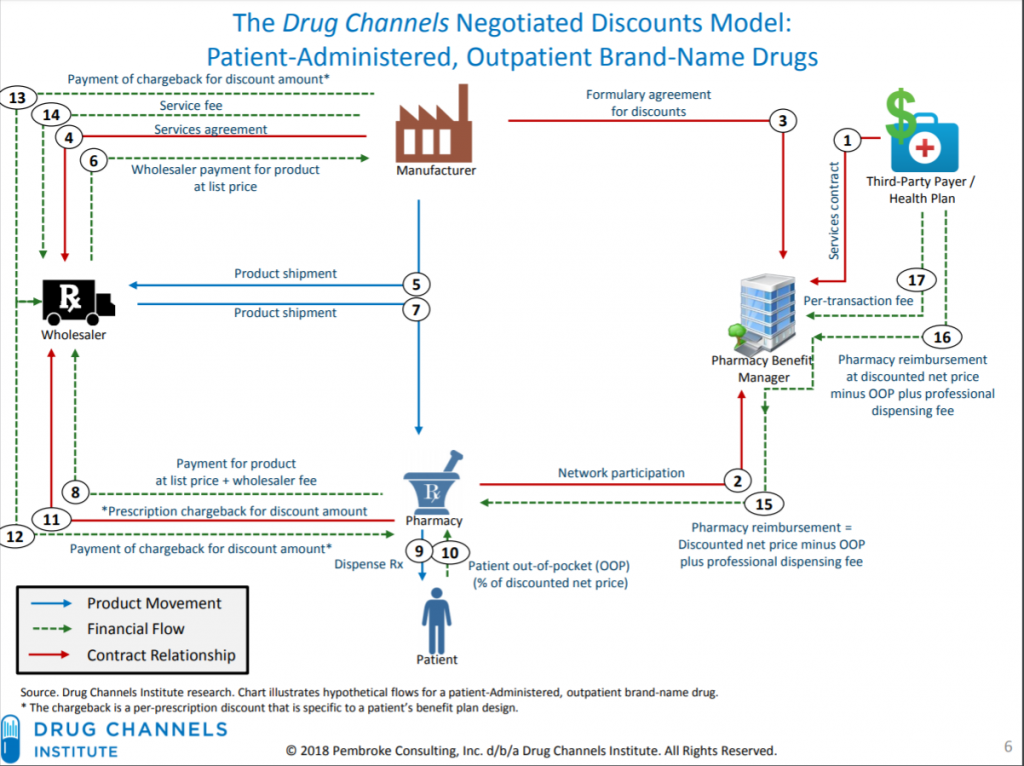Pondering Policy: What Would a World Without Rebates Look Like?
In mid-May the U.S. Department of Health and Human Services (HHS) posted a request for information (RFI) titled, HHS Blueprint to Lower Drug Prices and Reduce Out-of-Pocket Costs. The comment period closed in mid-July and more than 3,000 comments were received. Rebates paid from pharmaceutical manufacturers to purchasers, for example, pharmacy benefit managers (PBMs, insurers, employers, government payers, etc.) was a key topic in the Blueprint. In the section called “Create Incentives to Lower Prices,” the RFI asks several questions: whether PBMs should have a fiduciary duty, how to reduce the impact of rebates, what incentives could be used to lower or not increase net prices, and whether Medicaid should change inflationary rebate limits, to name a few.
The Pharmaceutical Care Management Association (PCMA), which represents PBMs in the U.S., responded with 170 pages of reasons the RFI has all sorts of bad ideas in it, especially those that would change the way the rebate process works today. PCMA wrote about the RFI’s proposals: “Perhaps most importantly, HHS’ policy suggests a drug supply chain that functions under entirely different rules than the current one…”
This is, in fact, exactly where the fun begins! What would a system look like under entirely different rules? At M2, we are honored to work alongside a wide range of clients who ask us to help them think through that very question, on all sorts of health care payment and delivery issues.
This week, the Drug Channels Institute published a model of what a new “system without rebates” might look like. “A System Without Rebates: The Drug Channels Negotiated Discounts Model,” is an exploration of how a system without rebates might work. As with any discussion of the drug supply chain in the U.S., a helpful graphic of the proposed system is included, which we have reproduced below.
This proposed model addresses some key issues in the current system:
- Out-of-pocket costs for drugs would decrease because payment would be based on the net discounted price;
- PBMs would perform tasks more akin to a group purchasing organization (GPO) or benefit plan administrators;
- Supply chain intermediaries such as wholesalers and pharmacies would be paid for their services, not based on a percentage of list price; and
- “The warped incentives of the gross-to-net bubble would vanish or be minimized.”
Implementation issues and challenges abound, but we appreciate that someone has put pen to paper (hands to keyboard!) and come up with a draft model ready for those of us who are interested to improve and refine.


Leave A Comment